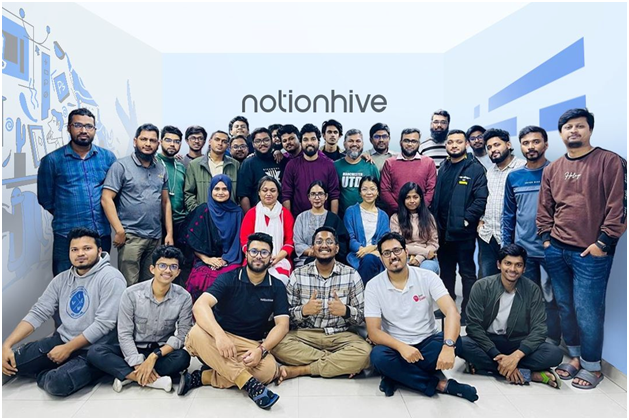
Md. Abdul Quader Khan. COURTESY
Bangladesh is one of the fastest-growing economies in the world, even during the COVID Pandemic. With increasing economic prospects and industrialization, migration of rural population to urban areas has become the country’s biggest challenge as the existing urban areas are becoming more concentrated. With a density of 47,400 people per square kilometer, Dhaka remains the most densely populated city on earth. By 2035, nearly 110 million people, about half of its total population, are expected to live in urban areas; currently, more than 60% of Bangladesh’s urban population is concentrated mainly in four metropolitan cities– Dhaka, Chattogram, Khulna, and Rajshahi. Given this pace of urbanization, Bangladesh is likelyto face challenges in meeting the needs of its growing urban population in terms of housing, transportation, energy and other infrastructure along with employment and other universal services.
A smart industrial city, to address the woes of urbanization, can be the perfect panacea. It propels the growth of an economy and spurs its development. It addresses the immediate need to provide adequate urban infrastructure, meets the needs of present and future generations with respect to economic, social and environmental aspects using ICTs and other means to improve quality of life, the efficiency of urban operation and services and competitiveness.
Smart industrial cities are known to leverage technological advancements using the Internet of Things (IoT) platforms to monitor city infrastructure, overseeing everything from traffic flows, parking, water and even air quality, and using the resulting data to handle long-term planning around environmental sustainability.
BSMSN has been conceptualized to be built on a contiguous land of 33,000 acres, adjoining the Upazilas of Mirsarai, Sitakundu of Chattogram district and Sonagazi of Feni district. In future, this city can be extend up to CompaniganjUpazila of Noakhali district and sandwipUpazila of Chattogram district. Its strategic location along the Dhaka-Chattogram Highway, advantages of being an ocean-front economic zone has motivated BEZA to dream in a bigger canvas. Instead of focusing only in the concept of economic zone, BEZA decided to utilize this massive project area in such an unprecedentedapproach that will transform the entire economy of Bangladesh, as well as improve the overall quality of life attracting businesses and citizens to settle in. This industrial City will be the 3rd largest and 1st planned smart city of the Bangladesh.
To transform BSMSN into a self-contained smart industrial city, BEZA has developed a comprehensive master plan to build a ‘Smart City’, incorporating seaport, rail and road connectivity, power plant, marine drive and social infrastructures like residential areas, tourism park, hospital, school and university, etc. The primary goal of the master plan is to ensure that critical infrastructure is economically sustainable and public services are interactive, transparent and responsive, i.e., to improve the environmental,economic and social sustainability. The comprehensive master plan has been designed addressing five central elements of industrial development: governance, economy, ecology, resources and community.
BSMSN, the first planned city of the country, will pave the way for establishing a truly world-class business and industrial centre. It is expected to create employment opportunities for 1.5 million people within the next 15 years and ensure US$25 billion export from this industrial enclave. The city has started attracting leading companies from around the world to start manufacturing for domestic and export market. Local companies, considered as giants, have also begun establishing factories to commencetheir operation in the city. It is expected that various types of industries, such as garments and its supporting industries, agro-products and agro processing products, integrated textiles, leather and leather goods, shipbuilding, motorbike assembly, food and beverage, paint and chemical, paper and products, plastics, light engineering (including auto-parts and bicycles), pharmaceutical products, power and solar parks will be set up in the industrial city.Though the industrial city is in the development stage, BEZA has already allocated about 8000 acres land among the 152 business houses and their proposed investment is around $22.5 billion.
BSMSN is going to be the country’s first ‘green’ or eco-industrial city harmonizing with nature, energy systems, materials and waste management; water supply and drainage; effective eco-industrialpark management; construction/renovation; integration with the local community. It aims to create an advanced recycling-based community in the city by developing a cooperative structure between industrial and residential areas. And to achieve this, BEZA has developed guidelines and policies to ensure the maintenance of existing water and create new water reservoir and lakes, reserve forest and green buffer zone. Three lakes, each one having a size of approximately 212 acres to 100 acres of land, are going to be developed in this zone, and the first one is in the implementation stage. It has been made mandatory to plant trees in at least 5% area of the allotted industrial plot, and at least 5% area must be open space. Besides, the city aims to increase the transfer, application and dissemination of technology and cleaner production methods to reduce hazardous waste, greenhouse gas emissions in the industrial zone.
The smart city will unquestionably bring about a paradigm shift in the economic growth of Bangladesh. BEZA has already constructed about 30 km of modern roads, gas, water& power supply system, 23 km super dyke for protecting for natural disaster, 150 MW power Plant, 230 KVA Grid line and administrative building. Total 12 industries and country largest 212 acres of SheikhHasianSarobor are in the final stage of construction. BEZA has already started work on the project as per theMasterPlan in collaboration with the World Bank. BEZA has undertaken a project titled Bangabandhu Sheikh Mujib Industrial City Development, through which modern roads, sewerage, CETP, desalination plant, 70 MW solar power, environment friendly factory building construction, skills development training program and various eco-friendly infrastructures will be constructed. Besides, JICA has started feasibility study for construction of seaport. In a word, we can say that this smart city will be the address of the next developed and prosperous Bangladesh.
*The writer is a development worker & consultants for Environmental and Social development.












0 Comments